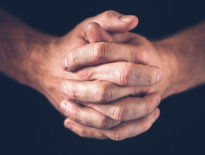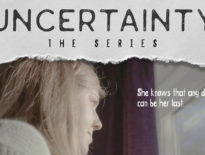Life in lockdown had an atypical rhythm and texture. While for some this upset their daily lives, for others it was an unexpected response to an unspoken need.
No matter how easily we previously adapted to new situations, the past months carried a dense air of uncertainty from which we would have escaped instantly had we found a single unblocked exit. Some have faced illness, separation from loved ones, grief, unemployment, and financial problems in just a short space of time.
COVID-19 tested our limits, reactions, solidarity, hope and faith that we use to talk about so much in sunny times. But some say that the pandemic has woven around them an oasis of peace that they had been dreaming of for a long time, but to which they could no longer see any path.
A pandemic away from our loved ones
The crisis created by COVID-19 and the restrictions imposed by the authorities have reshaped the ties between children and parents or grandparents. Visits on the run or planned get-togethers, meals that brought the family together, hugs and listening to stories on a grandparent’s knee became, overnight, as impossible as an outing on mountain routes reserved only for professional climbers.
“I haven’t seen my parents since the pandemic started, for fear of making them sick,” says Monica, a social worker in Bacău (Romania). Easter came and went, but instead of meeting her loved ones, all she could do was look at photos and relive memories.
And her little ones oscillated between the longing for friends and grandparents and the fear of coronavirus, after inevitably hearing bits and pieces from the daily news. The big brother hardly ever left the house for a walk around the block, convinced that the virus is a kind of dragon that will catch him as soon as he places his foot out of the door. Some reactions would’ve caused amusement if they were not so sad at the same time: whenever, at the end of a phone call, the grandfather sent kisses from afar to the grandchildren, the little girl would protest vehemently, convinced that, in the time of the coronavirus, even the mention of a gesture of affection so familiar and harmless once would now be dangerous.
When the walls of the apartment tightened, and when going to work was her only breath of fresh air, she longed to go to the country, to her parents, to listen to the whistling of the wind, to breathe in the smell of the mowed grass—small things, so invigorating now that they were a rare experience.
The pandemic found Andreea Stanciu, blogger and photographer, in the village where she had moved several years ago, together with her husband and their two sons, “two eternal fruits,” as she considers Raphael and Ephraim.
“Every man is a village”, Andreea writes on her blog and confesses to me that she left the city of Cluj for the village where her grandparents lived, because she understood that certain ways of living “scatter you, waste you, take you away from what you were created to be, and others gather you, complete you, help you in your inner becoming ”.
They chose to live in a “hermitage,” according to a visitor, on a village street, in a stone house, without fences to separate them from foxes, deer and squirrels. It is the place where they “untangle their thoughts in the light of the sunrise,” where every day they draw new paths to where they want to go and where they discover, moment by moment, the art of strengthening their roots in the soil of the world they were created for.
“Isolation came suddenly, without giving us too much time to think, without leaving room for strategies. And it is good that it came like this, because it revealed to each one of us the things, the customs, the people that we put in the place of God and whom we worshiped with the moments of our lives,” Andreea says. “Yes, I missed people…and I missed seeing myself in them,” says Andreea, explaining that, beyond the contacts mediated by the phone screen, she missed the real meetings, “in which you share what you are just by looking into the eyes of another, mirroring yourself in the being before you, without fear or suspicion.”
What a doctor (hasn’t) lacked in lockdown
The distance from loved ones—which increased day by day, even though they lived only a few streets away—was one of the things difficult to manage during the lockdown for D.P., a family doctor. “This pandemic took the medical fraternity by surprise, so even my 45 years of medical experience was not helpful,” says the doctor. The lack of adequate protective equipment overlapped with the novelty of an “aggressive virus, which changes its symptoms from one day to the next,” and the consultation of remote patients has become the new norm, in order to prevent infections.
“My responsibility is much greater, because I have to make a diagnosis based on symptoms subjectively described by the patient,” explains D.P.
He also misses discussing with the patients, assessing their mental and emotional state, but in the end, both he and the patients have adapted to this ‘new normal’. Now, only children come to the practice. His most frequent patients are infants who are in the current vaccination scheme.
Social distancing remains one of the most effective methods of protection, D.P. believes.
Throughout the lockdown, he was not afraid. “I have a God and I trust in Him,” says the doctor, adding that he has felt the power of the prayers of the patients and members of the church, who he has missed all this time.
Even if the pandemic came unexpectedly, the isolation also had many positive effects, constituting an opportunity to “restart life”, says dentist Titi Palade.
In fact, this whole time in which the dental office remained closed proved to be a real blessing, a segment of silence cut from a block of time which is usually very crowded.
Isolation provided a respite that gave him “the satisfaction of a job well done,” both in his house and in the perimeter of his garden; a time cut out from ordinary obligations, in which he could devote himself more to reading, family, friends, prayer, and in which the presence of God became very real.
The crisis was also an opportunity to restore confidence in a structure that does not give in even in “complicated times.” The doctor says that he missed his patients (and they missed him even more, if he takes into account the number of those who contacted him by phone to book an appointment for as soon as legally possible). He hopes he’ll now take every opportunity to spread the hope and values which he anchored himself into during the crisis.
When isolation becomes a feast of time and experience
All these months have been an incredibly long “long weekend” and a true release, says Larisa, who is preparing for her college admission.
She can’t easily identify any experience she missed during lockdown—exam preparation continued online, and going out with friends was the exception rather than the rule of a very demanding schedule prior to the pandemic, as well.
For the first time since the beginning of the school year, Larisa feels that time has softened its rhythm, becoming her friend. She had time to learn, get enough sleep, spend time in nature and enjoy her loved ones.
“I had time to breathe,” Larisa sums up her experience.
Before the lockdown, she would always sleep too little. She would go to bed in the early hours and the alarm would always wake her up too early. It was hard to slip through the tasks, with the busy schedule of each day, the commute to the city and the four weekly training sessions on the subjects for baccalaureate and admission.
Larissa does not worry about anything, neither about the exams, nor about the pandemic, which did not end with the general reopening. She keeps a safe distance from the negative news, refusing to join the chorus of those predicting the apocalypse, even if she counts quite a few loved ones as vulnerable to the virus. She enjoys today’s peace, aware that history has recorded much darker days than what is written today; Like most young women, she is oriented rather towards the symphony of events and feelings of the future, in which she believes she will sing her own notes.
The experience of isolation has so far meant more opportunities than disadvantages for Codruţa, who works in the field of organisational psychology.
“At first glance, the virus grins at me from anywhere: from a doorknob, a switch or a packet of biscuits. It has many sharp fangs that can come in through any incorrect layering of my emotional jumpsuit. The more yeast of attention to the virus I add to my mind, the more it ferments, doubling its quantity each time.” On closer analysis, Codruţa has discovered that her daily life now has a healthier, calmer and more fulfilling pattern: the office has moved home (and this change comes with a 3-hour bonus she had previously wasted daily crossing the city of Cluj from one end to the other), and her diet maintains its cadence much more easily (“I don’t skip meals anymore”).
Codruţa feels that she now lives in an arch over time and space comparable to the biblical Goshen. She believes that, in a feast of fulfilling experiences (which contrasts, she admits, with the experiences of those directly affected by the pandemic), the most valuable experience has been that of her soul, fed daily with a special Bread, “wrapped in black covers,” delivered by the Great Baker, immunising her against the fears that seek to haunt her.
The lockdown was frightening, at least in the beginning, but also wonderful in some ways, writes Iaromira Popovici in an article. What is certain is that it forced us to change our routine and look at everything in our lives from a different angle. Thus we learned to navigate an ocean of contradictory information, but also what it is like to manage on our own when shops and institutions are closed. The author points out: “The home became a mini-enterprise where we produced, if not all, like in the past, at least some things that are essential for the survival of its inhabitants: from the physical to the aesthetic and even the emotional and intellectual.”
And when we discovered that the needs we thought were essential could be relegated to the background or met in simpler ways, we were left with ample resources to discover the things that make us feel alive and that resist the corrosion of time.
Carmen Lăiu is a writer for ST Network and Semnele timpului.



















